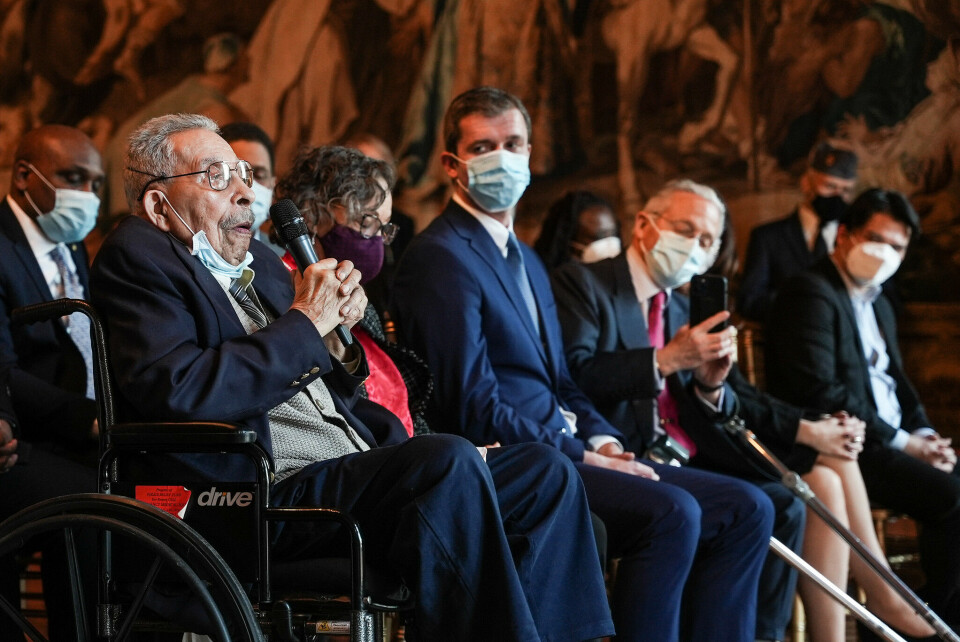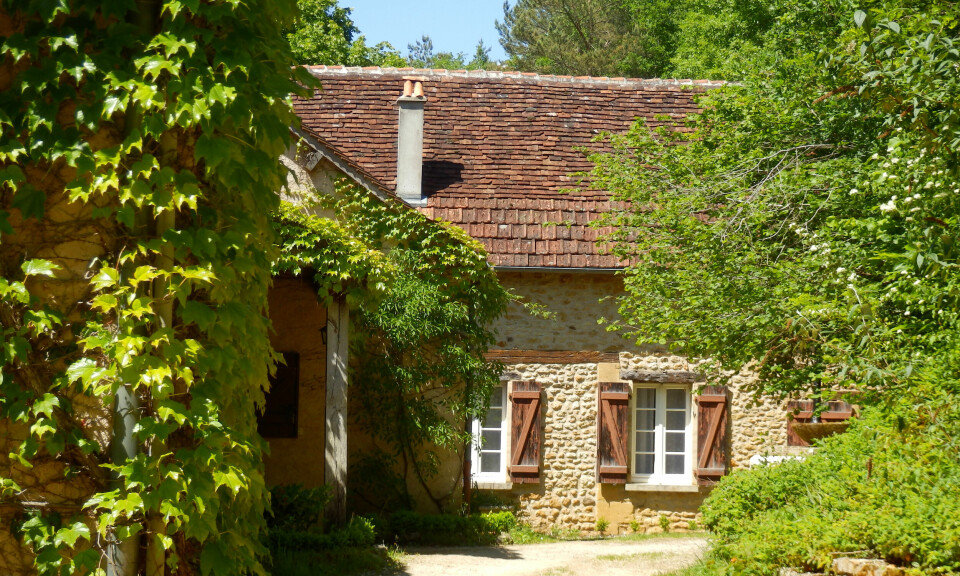-
Photos: Louis XIII-style château near Paris up for auction
The 400-year-old property has 32 hectares of parkland
-
Should France reduce the size of its baguettes to stop waste?
Would you welcome a smaller loaf?
-
Fatal HGV crashes: Goodyear in court in France over tyre defect claims
Investigators allege the firm knew about the problem but did not issue a recall
Black US D-Day veteran awarded France’s highest honour aged 100
Osceola Fletcher, who was given a similar award in America last year, has spoken about how racism denied him from being recognised sooner for his efforts during the war

One-hundred-year old African American war veteran Osceola Fletcher, who supported Allied troops during the D-Day Normandy landings and was seriously wounded there, has been awarded the Légion d’honneur, France’s highest honour.
It comes one year after the World War Two soldier was awarded the US Purple Heart, which is given to members of the armed forces who were wounded or killed while serving.
However, Mr Fletcher was for around three quarters of a century overlooked for this award due to being black.
It was not until his daughter began campaigning for his contribution to the war effort to be recognised several years ago that finally, at the age of 99, he was presented with the honour.
Mr Fletcher told US publication Daily News in 2019:
"Black soldiers didn’t get the Purple Heart. They got injured, damaged, hurt. But they never got wounded… Only the White men who were wounded got Purple Hearts,”
He also spoke of the discrimination he faced while serving in the army.
For example, the ship that carried him from Portsmouth (UK) to Europe was segregated. When families gathered to wave farewell to their loved ones on the boat going to war, “the black soldiers didn’t stay on the deck waving handkerchiefs…they were on the bottom,” Mr Fletcher said. He also said African American soldiers were given the hardest jobs.
The Consulate of France in New York, where Mr Fletcher received the Légion d’honneur medal yesterday (February 10), outlined his commitment to the war effort.
“Despite all [the discrimination], Osceola Fletcher devoted himself, even to the point of risking his life, to help his fellow Americans and to free France from the terrors of Nazism.
“He is a true model of selflessness, and an example to us all,” it wrote in dedication to the former soldier.
Jérémie Robert, Consul General in New York, paid tribute to the veteran on Twitter.
“Mr. Fletcher's story is the utmost example of bravery and courage and deserves to be shared for #BlackHistoryMonth,” he wrote.
Black History Month, which originated in the US and has since spread to several other English-speaking countries, takes place each year during the whole of February.
Osceola Fletcher the soldier
Mr Fletcher joined the US army at the age of 21 in 1943. Once in the army, he trained in the UK before joining up with the 254th Port Battalion.
His role in the Normandy Landings was to deliver critical supplies and letters to the soldiers on the frontline in the combat zones in northern France.
He arrived in Normandy one week after the D-Day landings.
During a supply run there, his legs were injured after being cut by debris still floating in the water.
In his own words: “In the rush and horror of it all, I actually didn't realise that I had been injured until I got ashore with the supplies”.
The Consulate of France in New York wrote:
“Delivering supplies has not always been considered heroic, but the conditions under which Osceola Fletcher performed this mission certainly were.
“His mission was also critical to the war effort. Without the resources and supplies needed to fuel military operations, the Allied forces could not have achieved victory.
“Without receiving letters from their loved ones back home, soldiers would have quickly lost morale.”
Osceola Fletcher the Francophile
Mr Fletcher served for two-and-a-half years in France.
Despite the horrors of the war, he developed a strong affinity for the country.
He has talked about meeting friendly people there and about taking a course at the American University in Biarritz on French culture and language.
He still to this day has the book ‘Parlons avec les Américains et les Anglais’ (Let’s talk to the Americans and the English), which was distributed to all the Allied soldiers at the time so that they could communicate with each other.
Osceola Fletcher the policeman, teacher and community leader
After returning to the US, Mr Fletcher secured a job with the New York police.
He spent 24 years in the force, and simultaneously got two master’s degrees.
After retiring from the police, he started a second career as a secondary-school English teacher.
He has always been an active member in his community too, serving as a member of the school board, sitting on the board of directors for a local hospital, and working with the crime prevention division of the district attorney’s office.
He also created programmes teaching young people to value education and get ahead in their careers.
Mr Fletcher is married with five children.
The Consulate of France in New York stated:
“The French government and the French nation will never forget his bravery and the sacrifice of his fallen companions, to whom we owe our freedom.”
Related articles
What is the history behind Paris’s Tomb of the Unknown Soldier?
US war veteran’s 100th birthday marked by French town he liberated
British soldiers killed in D-Day landings finally get fitting memorial
























